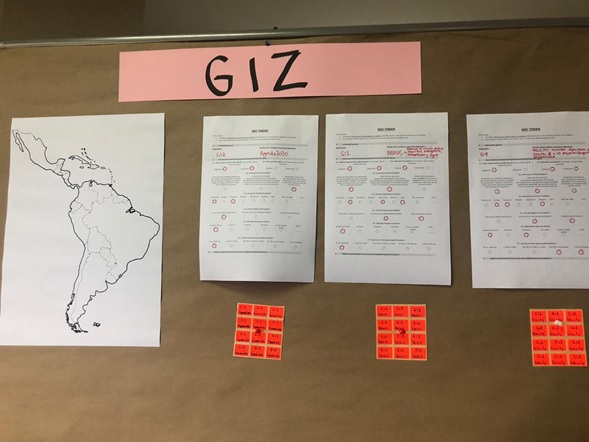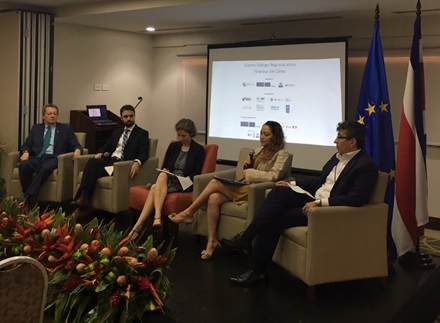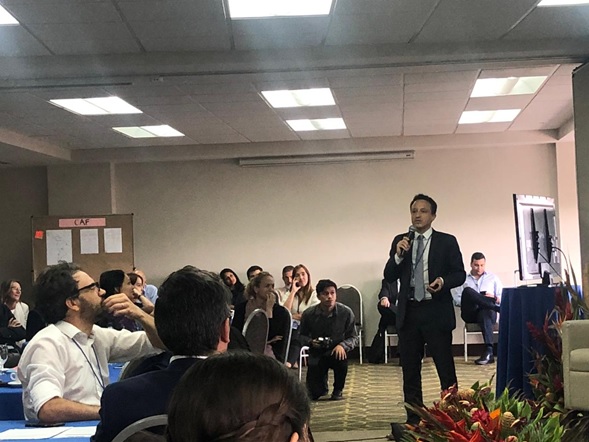How will the Nationally Determined Contributions (NDC) be financed in the Latin American region?
The long-term objectives, NDCs, were proposed in 2015 as the core of the Paris Agreement with a goal of reducing national emissions (by country) and adapting to the impacts of climate change by adding efforts from each country with their respective opportunity costs in terms of development.
Within the framework of the V Regional Dialogue on Climate Finance in Latin America, experiences were exchanged about the main advances, challenges and opportunities on NDCs for Latin America, in terms of financing, public and private investment; the current status of the sources and financial resources to face climate change was presented; and improvements as well as needs and investment opportunities in different sectors to obtain new financing in order to meet the ambitious goals defined in the NDCs and in other climate agreements were identified.

This event took place on March 19th and 20th in San José, Costa Rica, organized by the Ministry of Environment and Energy of Costa Rica, the Economic Commission for Latin America and the Caribbean (ECLAC), the EUROCLIMA+ Secretariat, the Deutsche Gesellschaft für Internationale Zusammenarbeit (GIZ) GmbH, the Development Bank of Latin America (CAF), the Inter-American Development Bank (IDB), the United Nations Development Programme (UNDP), the LEDS-LAC Platform, the United Nations Environment Programme (UNEP / UN Environment), among others.
The Global Program for Financing Energy for Low-Carbon Investments – City Advisory Facility (FELICITY) had the opportunity to participate in panel 5 where the solutions, tools and instruments to facilitate access to financing at the subnational level were presented . The challenges and opportunities faced by municipalities and cities to access climate finance, as well as some initiatives available in the region, were also mentioned.

FELICITY is the initiative implemented by GIZ; with the support of the European Investment Bank (EIB) and the Federal Ministry for the Environment, Nature Conservation and Nuclear Safety (BMU) of Germany that provides technical assistance in the preparation of projects focused on low carbon infrastructure in cities.

For more information, see the GIZ-FELICITY sites. These actions continue to promote the preparation of projects and financing for low carbon implementation at the regional level that contributes to international climate commitments.
